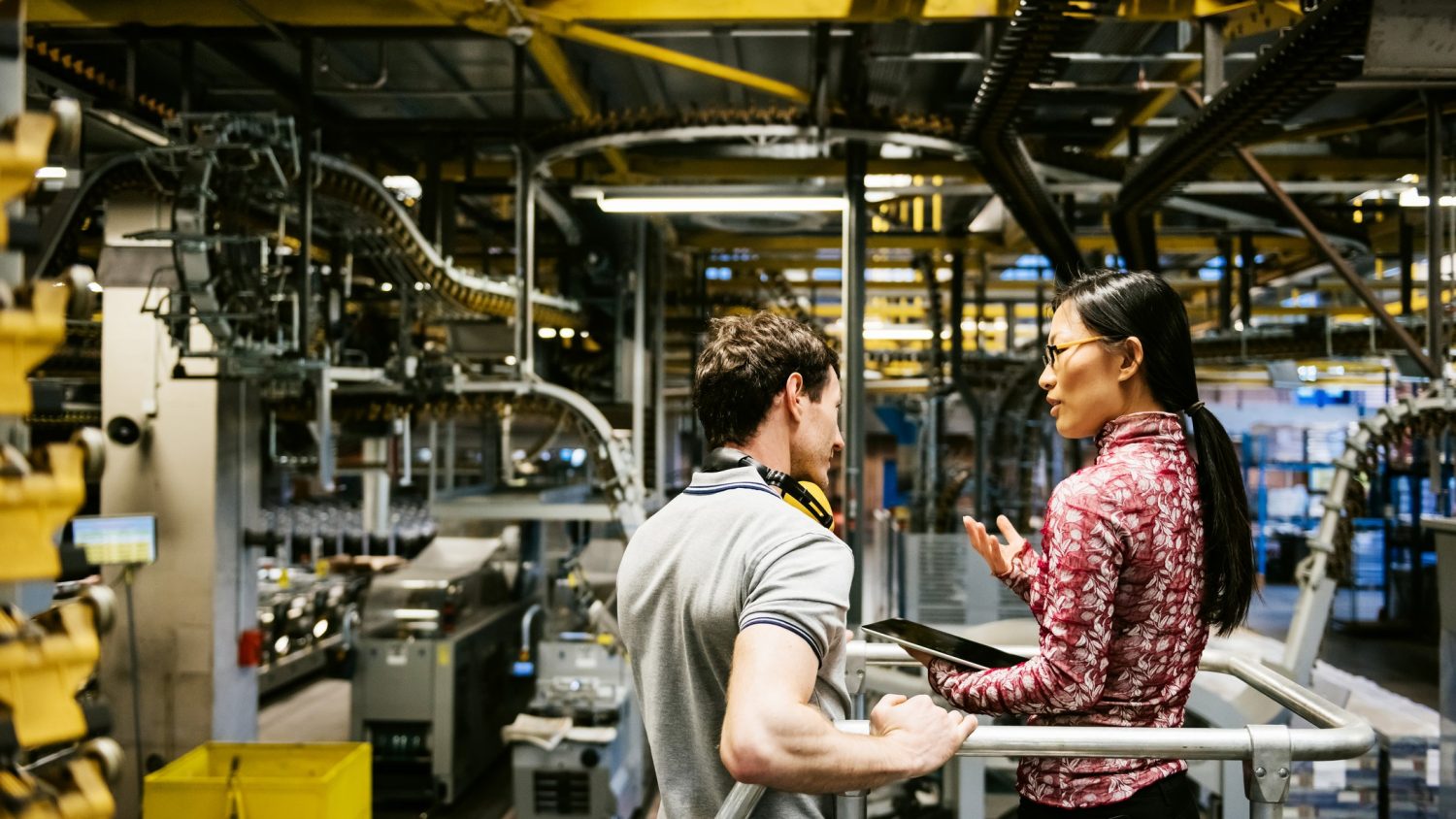June 20, 2024
Two words encapsulate how the manufacturing industry is responding to key challenges in 2024 and beyond: “digital transformation.” It underlies every initiative.
“Technology is poised to play a significant role in supporting manufacturers in taking on the challenges they may face in 2024,” a recent Deloitte report noted. “With a persistent search for efficiency and focus on building resilience across the organization, many manufacturers look to continue to pursue their digital transformation objectives—even as some may be considering pausing investments because of the challenging business environment.”
Here are some of the main challenges and ways they’re being addressed.
Supply Chain Disruptions
According to a report by West Monroe, 38 percent of manufacturers are still dealing with persistent supply chain issues that became most pronounced during the worldwide pandemic. “Many of these issues are due to the fact that two decades ago, most manufacturers outsourced parts and electric manufacturing in order to cut costs,” this Alpha-Sense article notes. “But with geopolitical tensions and energy shortages, manufacturers have increasingly been looking into establishing domestic supply chains, so as to increase resiliency and decrease dependence on other nations.” But as this Manufacturing Tomorrow article warns, “While reshoring is important to strengthen supply chains, it’s also critical to consider broader manufacturing diversification. Whether spreading the load across multiple sites in case of disruption, or in establishing a trusted supplier network that can be called upon in time of need, it’s important for manufacturers to have options.”
Skilled Labor Shortages
This MadiCorp blog post echoes other observations that, “As the manufacturing industry becomes more technologically advanced, the demand for workers with specialized skills is increasing.” The problem, however, is that too many workers lack the education and training required to fill these advanced roles. “In addition, there is a skilled trades shortage due to accelerated retirements as a result of the pandemic and the lack of younger generations getting into skilled trades jobs.” Attrition plays a major role, too. In fact, a recent National Association of Manufacturers (NAM) survey showed that 75 percent of manufacturing executives who responded were focused primarily on attracting and retaining top talent. “To address the issue, a collaborative effort between businesses, policymakers, and educators is needed. This includes investing in training and education, offering competitive wages and benefits, improving working conditions, leveraging technology, partnering with community organizations, and advocating for policy changes.” This story in Manufacturing Today suggests that training programs should involve “mixing theory and practical learning” as well as teaching “how advanced, automated, connected systems work while also giving employees hands-on time to experience how new machines work.”

Technological Integration
Gartner reports that, “Among manufacturing industry professionals that characterize their business in a state of growth over the next 18 months, 61 percent indicate that their organization plans to spend 10 percent or more on software in 2024 compared to 2023.” But it’s not as simple as it may seem. New technology costs a lot, requires expensive skilled workers to run it, and isn’t always easily integratable with existing systems. Nonetheless, also according to Gartner, “The top most recent software purchase for manufacturers in the U.S. was business intelligence and data analytics software, and 79 percent of businesses expect a positive ROI within 18 months of purchasing this type of tool.” But: “For nearly half of manufacturers (47 percent), identifying the right technology is the most difficult when planning investments in new software, followed by compatibility with their existing systems (44 percent).” The type of tech companies are turning to varies widely and includes generative AI and industrial IoT. Gartner also notes the increasing use of “IoT sensors, onboard computers, machine learning capabilities, embedded radio frequency identification tracking, augmented reality (AR) interfaces, energy-efficient components, and countless other innovations.”
Sustainability and Carbon Neutrality
This has long been a challenge in manufacturing worldwide, but there are signs that it’s becoming not only more important but also more effective. Increasing regulatory pressure combined with market demands and expectations are pushing more companies to take sustainability and neutrality seriously by investing in clean-tech like solar and wind, coming up with new ways to reduce waste and recycle, “reshoring” supply chains to make sure all manufacturing partners are equally focused on sustainable goals, investing more in R&D and other ways. “Manufacturing has relied on fossil-fuel energy since the First Industrial Revolution,” a recent McKinsey report states. “Now governments, customers, and investors are demanding that the sector embrace a more sustainable approach while also remaining cost-competitive. Switching to low-carbon sources will be technically and economically challenging, especially for energy-intensive heavy-industrial sectors. But the energy transition also offers significant opportunities for US manufacturers. Demand for new renewable-energy generation equipment is set to skyrocket, for example, with capacity expected to increase fourfold by 2050. And the Bipartisan Infrastructure Law is expected to trigger $5 billion in investment in new charging infrastructure for electric vehicles.”
In the end, overcoming persistent challenges in the manufacturing sector requires a combination of new tech, new goals and new behaviors. Depending on a company’s size and resources, it may also require the outsourcing of IT operations. Doing so can be far more cost-efficient, allow for greater and more rapid scaling, let companies focus on their actual business rather than the underlying technology, lower risk to everything from cyberattacks to manufacturing line shutdowns, and provide access to expertise and tech that normally wouldn’t be attainable or available.
“Every business is different, and we caution against a one-size-fits-all approach to manufacturing,” the Manufacturing Today story concludes. “The right blend of reshoring, automation, robotics, MES, and talent looks different for all manufacturers. What’s consistent, however, is a desire to shorten supply chains, digitally transform processes, and make data-driven decisions.”
For more details, email us at info@gomindsight.com or call (630) 981-5050.
About Mindsight
Mindsight, a Chicago IT services provider, is an extension of your team. Our culture is built on transparency and trust, and our team is made up of extraordinary people – the kinds of people you would hire. We have one of the largest expert-level engineering teams delivering the full spectrum of IT services and solutions, from cloud to infrastructure, collaboration to contact center. Our highly certified engineers and process-oriented excellence have certainly been key to our success. But what really sets us apart is our straightforward and honest approach to every conversation, whether it is for an emerging business or global enterprise. Our customers rely on our thought leadership, responsiveness, and dedication to solving their toughest technology challenges.
Mindsight is a suburban Chicago company that provides fully managed IT services to clients in a variety of sectors .

